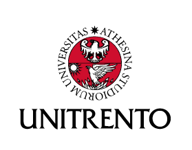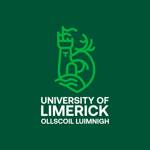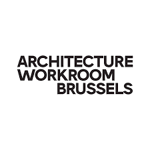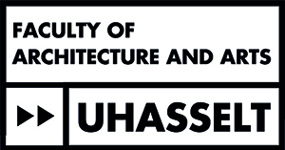Bekijk de inhoud van deze pagina
Reworlding
The REWORLDING network is a Marie Curie project that deals with how Ecological issues are experienced differently by different actors, communities and organisations, leading to societal polarisation and inhibiting urgently needed actions around these issues.



Save the date: Rewording Summer School
- May 4th - 8th 2026
- @ UHasselt, Belgium
- subject: re-institution
- more info soon - save the date!

About the Reworlding Network
The REWORLDING network is a Marie Curie project that deals with how Ecological issues are experienced differently by different actors, communities and organisations, leading to societal polarisation and inhibiting urgently needed actions around these issues. As Participatory Design (PD) researchers, we observe a need for design approaches that can bring diverse actors together to tackle these challenges in participatory ways, with particular attention to those who remain silent, both as human and non-human actors (e.g. plants, rivers and insects). The project aims to investigate and outline a careful and situated Participatory Design approach that can better understand and create synergies between the different worlds in which people live and work, and the more-than-human worlds they are entangled with.
The REWORLDING training programme identifies and articulates reworlding design capabilities that can support next-generation researchers in tackling the connections of social and ecological challenges. This is achieved through interdisciplinary methodology based on collective learning and participatory action research, embedded in inter-sectoral collaborations with non-academic partners who address socio-ecological issues from diverse perspectives. The research program explores the capabilities needed to address socio-ecological issues, and their translation to specific skills and training needs. Through articulated pathways to gain impact, we will be connecting the project activities with various stakeholders at different scales and with relevant programmes at European and international level (such as SDGs and European Green Deal).
Reworlding's aim
Ecological issues are experienced differently by different actors, communities and organisations, leading to societal polarisation and inhibiting urgently needed actions around these issues. As Participatory Design (PD) researchers, we observe a need for design approaches that can bring diverse actors together to tackle these challenges in participatory ways, with particular attention to those who remain silent, both as human and non-human actors (e.g. plants, rivers and insects). The REWORLDING network aims to investigate and outline such a careful and situated PD approach that can better understand and create synergies between the different worlds in which people live and work, and the more-than-human worlds they are entangled with.
Reworlding training programme
The REWORLDING training programme identifies and articulates reworlding design capabilities that can support next-generation researchers in tackling the connections of social and ecological challenges. This is achieved through interdisciplinary methodology based on collective learning and participatory action research, embedded in inter-sectoral collaborations with non-academic partners who address socio-ecological issues from diverse perspectives. The research program explores the capabilities needed to address socio-ecological issues, and their translation to specific skills and training needs.
Through articulated pathways to gain impact, we will be connecting the project activities with various stakeholders at different scales and with relevant programmes at European and international level (such as SDGs and European Green Deal).
PhD Research Project
Below you find the descriptions of the 11 PhD research projects within the REWORLDING network.
Researcher 1: Reworlding Neuro-diversity in society: mapping inclusion strategies and barriers toward sustainable and neuro-divergent affirmative environments // Limerick University, Ireland
Researcher 1: Reworlding Neuro-diversity in society: mapping inclusion strategies and barriers toward sustainable and neuro-divergent affirmative environments // Limerick University, Ireland
Duration: 36 + 12 months
Profile: Doctoral candidate with a background in Design/Social sciences
Short summary of the PhD project: This project will look at current practices, services and discourses around autism inclusivity via collaboration with the two largest Charities for Autism in Ireland: Aslam based in Dublin and ASD Ireland Based in Limerick. The PhD student is supposed to engage with these organizations to map their services and their network of collaborations with other stakeholders. The study will identify best practices but also barriers to inclusivity, and will explore participatory approaches to progress and evolve the provision of services/infrastructures/platform supporting neuro diversity inclusive environments in a sustainable fashion.
Objectives: (1) Map the actors, perspectives, concerns, capabilities and ambitions, and represent the socio-environmental entanglements within a case study, related to Organizations aimed at promoting inclusivity/awareness, and providing services to neuro-diverse individuals and their carers. (2) Identify the caring strategies, practices and tools that the actors use to tackle socio-ecological challenges, as well as their limits and barriers. (3) Pilot reworlding strategies and capabilities to tackle socio-ecological challenges and create sustainable inclusive environments.
Expected Results: 1) Participatory mapping and ethnographic research of actors and entanglements around ASD Ireland (https://www.asdireland.ie/) and AsiAm (https://asiam.ie/). (2) Atlas of practices, strategies, alliances and tools used by the actors. (3) Outline of reworlding practices and their assessment (4) Participatory development of reworlding inclusive sustainable strategies (that the organizations and any other similar actor can immediately exploit).
Host: Limerick University, Computer Science and Information Systems
Planned secondments: (1) Ireland ASD and AsIam: to provide a platform and situated context for the researcher to perform fieldwork and social mapping. (2) Aalborg University, Tom H. Børsen: to learn about co-design strategies and interactive tools for marginalized actors. (pdf, 171 KB)
Researcher 2: Reworlding social housing estates: integrating social and ecological practices of conceiving, using and maintaining collective space // UHasselt, Belgium
Researcher 2: Reworlding social housing estates: integrating social and ecological practices of conceiving, using and maintaining collective space // UHasselt, Belgium
Duration: 36 + 12 months
Profile: Doctoral candidate with a background in Design/Architecture
Short summary of the PhD project: Social housing estates have the potential to, because of their scale and location, trigger larger transition processes. Think of expanding slow road networks, restoring the infiltration capacity of water systems, increasing the biodiversity of natural corridors, etc. The main question of this PhD is how to not only capitalize on this ecological potential, but also on its potential to trigger social transition processes. How can the introduction of new ecological networks, systems and corridors increase the capacity of residents, ngo’s and local authorities to both care for themselves and for their environment.
Objectives: (1) Perform a participatory mapping of actors and relations involved in the conception, use and maintenance of collective spaces in social housing estates in selected case studies. (2) Document the social and ecological practices of key actors (residents, service providers and authorities) and the conflicts among them; (3) Propose design strategies and scenarios to reimagine collective space practices in a caring and careful way (4) Define pathways for implementing scenarios and outline the conflicts and opportunities that these may introduce.
Expected Results: (1) Participatory mapping and ethnographic research of actors involved in the socio-ecological transition of collective space in social housing (2) Participatory atlas of spatial typologies, practices and infrastructures used by key actors involved in the case studies (3) Participatory redesign of strategies and scenarios for the collective space in social housing transition towards 2050.
Host: Hasselt University, Faculty of Architecture and Arts, research group ArcK - Spatial Capacity Building.
Planned secondment(s): (1) Architecture Workroom Brussels, Joachim Declerck to learn about and engage with actors in socio-ecological transition in social housing. (2) University of Limerick, Mark Marshall to learn and gain hands-on experience in historic buildings as energy prosumers.
Researcher 3: Retracing sustainable platform cooperative models // Aalborg University, Denmark
Researcher 3: Retracing sustainable platform cooperative models // Aalborg University, Denmark
Duration: 36 months
Profile: Doctoral candidate with a background in IT/Design
Short summary of the PhD project: The project will focus on promoting the emergence of a platform cooperative in the city of Aalborg, relying on the adaptation of existing technologies (e.g. coopcycle.org in the delivery sector). By involving university graduates and migrant workers, the initiative allows tracing the network of support needed for the formation of platform cooperatives. This allows putting at the centre of co-design activities organizational models for platform cooperatives.
Objectives: (1) Support, through Participatory Action Research (PAR) in the city of Aalborg, the establishment of a platform cooperative to support the sustainable transition of the delivery sector, e.g. food, relying on existing technologies (e.g. coopcycle.org/en/) and involving university graduates and migrant workers. (2) Trace and document the more-than-human network involved in establishing a platform coop with a strong local orientation, beginning with the public institutions supporting the establishment of the cooperative. (3) Propose co-design strategies to identify ways of collecting start-up capital and developing business and technology models to maintain and develop the cooperative.
Expected Results: (1) PAR report on creating and launching a sustainable, platform-based cooperative within a local community. (2) Collect, describe and analyse emergent practices in delivery, income-generation and relations between the cooperative, support space, local community and the technology design, development, and use. (3) Co-design infrastructures for business and technology models to maintain the platform cooperative.
Host: Aalborg University, Department of Planning
Planned secondment(s): (1) International House North Denmark, Lasse Frimand Jensen: to engage through PAR with actors who form a cooperative. (2) University of Trento, Francesca Forno: to learn and gain hands-on experience in Participatory Action Research with food production cooperatives.
Researcher 4: Retracing precarious self-employment: self-sustainable networks in the food sector // University of Trento, Italy
Researcher 4: Retracing precarious self-employment: self-sustainable networks in the food sector // University of Trento, Italy
Duration: 12 + 36 months
Profile: Doctoral candidate with a background in Social Sciences
Short summary of the PhD project: Within an overarching Action Research framework, the project focuses on work precariousness and solo self-employment in the context of food industry and policies. The PhD student will engage with grassroots food organizations as well as institutional stakeholders in Italy, Croatia, and partly Denmark (see "Planned secondment(s)" below), to map their practices, discourses, and network of collaborations. The research will identify good practices and barriers —at the economic, political, and cultural level— for/to both human and social (e.g. decent work), and environmental sustainability. The study will also explore participatory approaches to designing for the improvement of work, social, and ecological conditions in the food sector.
Objectives: (1) Perform qualitative research on self-employment in the context of alternative food production, distribution and consumption, focusing on precariousness, safety nets (e.g. by welfare state or trade unions), network relationships, organising, and everyday life. (2) Identify and describe the roles of grassroots organisations and their network of relations both internally and externally, particularly with institutions. (3) Undertake a comparative and comprehensive analysis of multiple stakeholder roles in grassroot networks and their relation with food policies, in order to propose Participatory Design (PD) approaches that go ‘beyond the local’.
Expected Results: (1) Comparative and comprehensive analysis on vulnerable self-employment in food production and distribution. (2) Multi-stakeholder roles analysis of grassroot networks in the food sector, with an analytical map and a series of requirements. (3) Outline of a PD approach for ‘beyond the local’ food policy, by reworlding work conditions in food production and distribution.
Host: University of Trento, Department of Sociology and Social Research
Planned secondment(s), i.e. shorter and longer stays to benefit from a range of experiences working with other institutions both inside and outside academia: (1) Institute of Social Sciences Ivo Pilar, Filip Majetic: to perform situated qualitative and PD research within a food cooperative from a social science perspective (2) University of Aalborg, Maurizio Teli: to learn and gain hands-on experience in a different context of labour, welfare and food industry, and to kick-off the PD approach that go ‘beyond the local’.
Researcher 5: Reconnecting: social renewal and creative regeneration for just urban transitions // Malmö University, Sweden
Researcher 5: Reconnecting: social renewal and creative regeneration for just urban transitions // Malmö University, Sweden
Duration: 36 + 12 months
Profile: Doctoral candidate with a background in Design/Anthropology
Short summary of the PhD project: This position is affiliated with the EU project Bauhaus of the Seas Sails (https://bauhaus-seas.eu/boss/), linked to the work being undertaken as partners by Malmö University with the Marine Education Centre (https://en.smkc.se/om-oss) and to the project’s legacy in the city of Malmö. The project concerns how the city’s inhabitants and other local actors understand themselves as related to the sea, the marine environment and life under water and will work across the city to embed a more-than-human perspective.
The focus will be specifically on articulating and experimenting with cross-sector collaborations and multistakeholder processes that aim at including both humans and non-humans. The intention is to advance Participatory Design theoretical frameworks and methodologies to support these kinds of processes. During the first three years, there will be secondments outside Sweden to two organisations forming part of the Reworlding consortium: Hasselt University and Architecture Workroom Brussels
Objectives: (1) Perform ethnographic and situated Participatory Design (PD) research within a cross-sector transformation initiative focused on reconnecting the sea with the city and its inhabitants, to examine how transformation is understood, evaluated and negotiated in different contexts. (2) Observe and articulate the specificities of context, dynamics and strategies in transformation initiatives, identifying opportunities and challenges for connecting different actors, including the sea and more-than-human participants. (3) Articulate practices for cross-sector and more-than-human engagement and making cultural shifts as part of just urban transitions.
Expected Results: (1) Ethnographic records of the context and dynamics between actors in cross-sector transformation initiative focusing on reconnecting the sea with the city and its inhabitants. (2) Collection and description of strategies and design capabilities relevant for translation in the given context. (3) Co-design of events that enhance translation and design capabilities of actors in transformation initiatives. (4) Defining capabilities and strategies for just and sustainable transitions that support the flourishing of all life by fostering cultural shifts.
Host: Malmö University, Department of Arts and Communication (K3), Faculty of Culture and Society
Planned secondment(s): (1) Architecture Workroom Brussels: to perform situated PD research within a cross-sector transformation initiative focusing on co-design and water bodies. (2) UHasselt, Liesbeth Huybrechts: to learn and gain hands-on experience in devising PD strategies for cross-sectoral alliances, transformation practices and training events.
Researcher 6: Reworlding Urban Cultural Heritage: community learning on urban area revitalisation and cultural heritage preservation through public and grassroots initiatives // University of Limerick, Ireland
Researcher 6: Reworlding Urban Cultural Heritage: community learning on urban area revitalisation and cultural heritage preservation through public and grassroots initiatives // University of Limerick, Ireland
Duration: 36 + 12 months
Profile: Doctoral candidate with a background in Social Sciences or Interaction Design
Short summary of the PhD project: This project will investigate practices around engagement with communities to foster learning on topics such as revitalisation, regeneration and heritage preservation in urban areas. The PhD candidate will work with local organisations and community groups to engage them in activities to help examine issues raised during urban revitalisation activities and how to balance such revitalisation, modernisation and improved sustainability with the preservation of the cultural heritage embodied within the urban space.
Objectives: (1) Perform qualitative and Participatory Design (PD) research within a community-based infrastructure for the transition of built heritage into sustainable spaces. (2) Determine and articulate the specificities of context and potential connections of local initiatives with the city’s ambition to turn heritage buildings into energy prosumers (e.g. via integration of smart technologies, citizen actions, and energy cooperatives). (3) Develop and test strategies for connecting actors via co-designs for public science (e.g. citizen observatory & innovation lab with digital platforms).
Expected Results: (1) Participatory Action Research report on data analysis and visualisation with local communities. (2) Collection and description of strategies and design capabilities for community learning and engagement around sustainability and smart technologies. (3) Co-designed strategies and tools for integration of technologies into community-based participatory design processes.
Host: University of Limerick, Dept. of Computer Science and Information Systems
Planned secondment(s): (1) WAAG, Pam de Sterke,: to learn about PD strategies of community-based learning. (2) UHasselt, Oswald Devisch: to learn and gain hands-on experience in collaborating with actors on spatial aspects of socio-ecological transition.
Researcher 7: Reconnecting for Sustainable Work Platforms // Aalborg University, Denmark
Researcher 7: Reconnecting for Sustainable Work Platforms // Aalborg University, Denmark
Duration: 36 months
Profile: Doctoral candidate with a background in IT/Design or related fields (e.g. Science and Technology Studies, Techno-Anthropology, Sociology of Technology, Work, or Organization)
Short summary of the PhD project: The project will investigate how to design and establish physical spaces, legal, economic, and technological services, capable of promoting the emergence of platform cooperatives in the city of Aalborg. That implies co-designing, together with the cooperative movement and marginalised social groups as unemployed graduates or migrant workers, strategies that can allow the establishment of platform cooperatives at the local level.
Objectives: (1) Perform Participatory Action Research (PAR) with the goal of establishing the Future Jobs Lab - an umbrella initiative supporting the emergence of different platform cooperatives in Aalborg. (2) Detect and articulate the specificities of reconnecting physical spaces, legal, economic, and technological services, in a way that is capable of supporting marginalised groups, as unemployed graduates or migrants, in building their local platform cooperatives in a variety of service and industrial sectors. (3) Co-design and test strategies for prototyping future work platforms in their institutional, physical, and technological elements.
Expected Results: (1) PAR report on co-designing the Future Jobs Lab. (2) Collection and description of strategies and design capabilities for sustainable work platforms. (3) Prototypes of digital, physical, and institutional elements for sustainable cooperative work platforms.
Host: Aalborg University, Department of Planning
Planned secondment(s): (1) Taenketanken Demokratisk Erhverv, Ditte Brøgger/Troels Mandøe Glæsne: to co-design the local requirements that cooperatives should satisfy, legally, financially, and organizationally. (2) University of Limerick, Cristiano Storni: to learn and gain hands-on experience on how the Future Jobs Lab can be inclusive of neurodiverse people and associations.
Researcher 8: Reworlding communities: enacting regenerative worlds across different European contexts // Malmö University, Sweden
Researcher 8: Reworlding communities: enacting regenerative worlds across different European contexts // Malmö University, Sweden
Duration: 36 + 12 months
Profile: Doctoral candidate with a background in Design/Anthropology/Social Science
Short summary of the PhD project: This position works across countries to explore participatory design and regeneration through cultural interventions, using and developing such methods as Theatre of the Oppressed and working with cultural organisations to learn how festivals can create transformations towards more liveable futures. It will draw on arts and embed a more-than-human perspective, developing the field of Participatory Design by contributing to understandings of cultural transformation and applying relational theory. During the first three years, there will be secondments outside Sweden to two organisations forming part of the Reworlding consortium: University of Trento and Landscape Choreography, Italy.
Objectives: (1) Perform Participatory Action Research (PAR) and ethnographic research to detect connections between social and environmental challenges in regeneration through cultural initiatives in three cities (Milano, Trento and Malmo). (2) Identify and articulate regenerative practices of actors (e.g. artists or choreographers) involved in cultural innovation and urban regeneration. (3) Conduct Participatory Design (PD) workshops for reimagining regenerative practices and socially-engaged performative techniques for cultural change.
Expected Results: (1) Participatory Action Research (PAR) report on socio-environmental challenges of urban regeneration in three contexts. (2) Collection and description of regenerative practices. (3) Co-design workshops for reimagining and prototyping regenerative practices.
Host: Malmö University, Department of Arts and Communication (K3), Faculty of Culture and Society
Planned secondment(s): (1) Landscape Choreography with Emanuele Braga: to perform situated PD research with an arts organisation on experiential learning for culture change, (2) University of Trento, Chiara Bassetti: to learn and gain hands-on experience about art and social innovation.
Researcher 9: Reimagining community-driven transformation of built environment // UHasselt, Belgium
Researcher 9: Reimagining community-driven transformation of built environment // UHasselt, Belgium
Duration: 36 months
Profile: Doctoral candidate with a background or strong interest in Urban Design and Transitions
Short summary of the PhD project: This project engages with the built environment, in places where the need or desire for a more fundamental, systemic transition is evident (flooding, drought, socio-economic fragility, energy transition, …). The researcher will engage in participatory ways with one or more of such contexts to investigate the methods for a structural and step-by-step transformation of these places in inclusive and sustainable ways. New roleplays between different societal stakeholders, and new participatory approaches and/or design-driven processes will be developed and tested during this PhD, contributing to the toolbox we need to successfully realize place-based system change and transition.
Objectives: (1) Perform Participatory Action Research (PAR) within a pilot setting of transdisciplinary transformation of built environments for socio-ecological sustainability. (2) Identify, structure and advance tools, settings and methods that connect local communities’ aspirations with governmental transition ambitions, to envision diverse co-ownership and collaboration models. (3) Formulate the structural criteria and components of socio-environmental infrastructures and working methods to activate integrated local action and transformation.
Expected Results: (1) Participatory Design report on structural criteria and components in place-based system change of the built environment in Belgium; (2) Collection and description of design practices and strategies for connecting between stakeholders in community-driven and transdisciplinary spatial transformation; (3) Co-design of reworlding tools and typologies for co-ownership and collaboration in place-based system change.
Host: The doctoral candidate will be enrolled in the PhD program at UHasselt.
Planned secondment(s): (1) Architecture Workroom Brussels. (2) The doctoral candidate will have the option to select an additional non-academic or academic secondment to learn and gain hands-on experience about design-in-dialogue for community-driven socio-ecological transition.
Researcher 10: Reimagining industrial landscape futures in sustainable development // UHasselt, Belgium
Researcher 10: Reimagining industrial landscape futures in sustainable development // UHasselt, Belgium
Duration: 36 + 12 months
Profile: Doctoral candidate with a background in Design/Architecture
Short summary of the PhD project: This project engages with environments that have an industrial history, but are in a process of transition. The researcher will engage in participatory ways with such contexts to investigate the possibilities to transform these environments into public meeting spaces and landscapes that can support addressing the challenges of climate change and social inequalities. New participatory approaches will be developed during this PhD to engage with such complex socio-environmental challenges.
Objectives: (1) Perform Participatory Action Research (PAR) to trace and articulate connections between human and more-than-human actors in socio-ecological transition of post-industrial sites and landscapes in the Regions of Limburg and - during two secondments - in Kortrijk (taking the regional spatial vision into account) and Malmö. (2) Collect and describe existing experiences, relations and practices of actors involved in sustainable development of complex post-industrial sites and their environments. (3) Co-design collective learning tools, typologies and scenarios that connect between inhabitants, policy, business, social and environmental actors and reimagine their roles in tackling socio-environmental challenges.
Expected Results: (1) PAR analysis of development trajectories for the post-industrial sites in the case studies. (2) Participatory Design (PD) workshops to detect and describe the site dynamics, relations and practices. (3) Co-design of a transition toolbox for planning post-industrial landscape futures.
Host: Hasselt University, Faculty of Architecture and Arts, research group ArcK - Spatial Capacity Building
Planned secondment(s): (1) Leiedal, Bram Tack, to perform PD research on regional development of post-industrial landscape. (2) Malmö University, Anna Seravalli: to learn and gain hands-on experience in innovative design practices in landscape transformation.
Researcher 11: Reimagining open spaces for radical participation and collective imagination // ETH Zurich, Switzerland
Researcher 11: Reimagining open spaces for radical participation and collective imagination // ETH Zurich, Switzerland
Duration: 36 months
Profile: Doctoral candidate with a background in Design/Architecture
Short summary of the PhD project: This project engages with spaces for cultural transformation. More specifically the research looks at cultural spaces in (peri-)urban areas that form the basis for contemporary imaginaries for inclusivity. The researcher will engage in participatory ways with such places to understand the (spatial) conditions, relations and moments that are key to building transformational communities. Topics of hosting, retreating, organisational grounding and processes of collective learning will be actively touched upon during this PhD.
Objectives: (1) Engage with existing design practices of activist collectives and community-based initiatives, with focus on spaces of informal learning, participation and openness. (2) Perform design research to detect connections between social and environmental challenges in community and activist spaces. (3) Conduct collective imagination and Participatory Design workshops for co-creating tools and environments for reworlding, linking physical and digital space via learning methodologies and urban transformation processes.
Expected Results: (1) Collection and description of design practices and scenarios in community and activist spaces in Europe. (2) Participatory Design workshops to develop guidelines and roadmaps for those spaces. (3) Prototypes of physical space and hybrid space setups that promote collective learning and reinterpretations of inclusivity.
Host: ETH Zürich, Department of Architecture
Planned secondment(s): (1) NetHood, Ileana Apostol & Panayotis Antoniadis: to perform PD research with an open community of researchers and activists connecting digital and urban spaces, (2) UHasselt, Oswald Devisch: to learn and gain hands-on experience about co-design of collective spaces for socio-ecological transition.

This project has received funding from European Union's EU Framework Programme for Research and Innovation Europe Horizon Europe (HORIZON) Marie Skłodowska-Curie Actions Doctoral Networks (MSCA-DN) under the grant agreement 101119451.
About the picture: public installation slowing down traffic and greening a space, installation by UHasselt, image by Qrios.
Project partners







